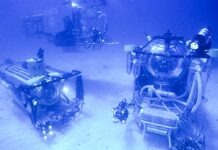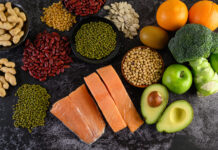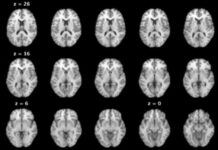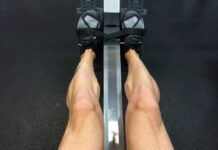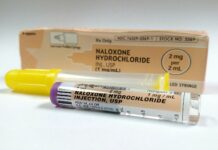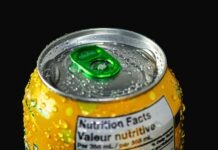When it comes to achieving your fitness goals, whether it’s building muscle, enhancing endurance or shedding fat, what you eat and when you eat it can play a pivotal role. This concept, known as “nutritional timing,” refers to aligning your nutrient intake with your physical activity to maximize performance, recovery and overall results. A strategic approach to eating before and after exercise can have significant effects on how your body uses energy, repairs itself and adapts to the stresses of training.
Understanding macronutrients
Before diving into the specifics of nutritional timing, it’s important to understand macronutrients — the primary nutrients that your body needs in large amounts to function properly. These macronutrients are carbohydrates, proteins and fats.
Carbohydrates: These are the body’s preferred source of energy, especially during high-intensity activities like running or lifting weights. Carbs are broken down into glucose, which is used to fuel your muscles during exercise.
Proteins: Proteins are the building blocks of muscle. After exercise, they are essential for repairing and building new muscle tissue. Proteins are broken down into amino acids.
Fats: Although often misunderstood, fats are crucial for long-term energy, hormone production and overall cell function.
The importance of pre-exercise nutrition
What you eat before a workout can set the stage for your performance. Eating the right foods can help fuel your exercise session, prevent muscle breakdown and ensure you have the energy to complete your workout effectively.
Why you should eat before exercise
Fueling the muscles: Your muscles rely heavily on carbohydrates for energy during exercise, especially high-intensity workouts. By eating a balanced pre-workout meal, you provide your muscles with the glucose they need to perform at their best.
Preventing muscle breakdown: During exercise, especially when glycogen (stored carbs) levels are low, your body may begin breaking down muscle protein for energy. Consuming carbs and protein before your workout can help reduce this breakdown, preserving your hard-earned muscle mass.
Sustaining energy levels: Having a meal rich in complex carbs before exercise can help maintain your energy throughout your session, preventing early fatigue.
What to eat before exercise
A pre-exercise meal should be consumed 1-3 hours before your workout and should consist of easily-digestible carbohydrates and lean protein. Examples include oatmeal with fruit, a banana with peanut butter or a smoothie with protein powder and berries.
If you’re short on time, a quick snack 30 minutes before exercising, like a piece of fruit or a small protein bar, can provide a quick energy boost.
Post-exercise nutrition: the window of recovery
After exercise, your body is in a state of repair and recovery. It has depleted some of its glycogen stores, and muscle fibers may have experienced minor damage during resistance training or intense cardio. Eating the right nutrients post-workout helps kickstart the recovery process and supports the body’s ability to adapt and grow stronger.
Why you should eat after exercise
Refueling glycogen stores: After exercise, particularly endurance activities, your body needs to replenish its glycogen stores. Consuming carbohydrates shortly after exercise helps restore this energy reserve.
Repairing muscle tissue: Protein is essential post-workout to help repair and rebuild muscle fibers that may have been damaged during exercise. This is especially important for those focused on strength training and muscle gain.
Optimizing recovery: Without proper nutrition, your recovery process will be slower, leading to muscle soreness, fatigue and even potential injury over time. Eating after exercise helps speed up recovery so that you can continue to train at your best.
What to eat after exercise
A post-exercise meal should be consumed within 30-60 minutes after your workout. Aim for a combination of protein and carbohydrates. For example, you might have a grilled chicken sandwich, a protein shake with fruit or a quinoa salad with vegetables and tofu.
If you’re unable to eat a full meal, a snack like Greek yogurt with honey or a protein bar can suffice until your next meal.
Individualized nutrient needs
While the principles of nutritional timing are applicable to most, the exact quantities of macronutrients (carbs, proteins, fats) that you need before and after exercise will depend on several factors, including your fitness goals, body composition, activity level, and overall health.
For instance, endurance athletes may require more carbohydrates to fuel their long workouts, while strength athletes need more protein to support muscle repair and growth. People aiming to lose fat might eat fewer carbs (NOT “no carbs”) and more protein to preserve muscle mass while in a calorie deficit. Individuals with specific dietary restrictions or medical conditions may also need to adjust their macronutrient intake accordingly.
Skipping meals can stall your progress
Failing to eat before or after exercise can significantly impede your results. If you skip a pre-workout meal, you may experience low energy, reduced endurance and an inability to perform at your best. This can lead to less effective workouts and slower progress.
Not eating after exercise can be even more detrimental. Without the proper nutrients to replenish glycogen and repair muscle tissue, your body may remain in a catabolic state, where it breaks down muscle for energy. Over time, this can lead to muscle loss, increased fatigue and a plateau in your fitness progress.
By understanding your unique macronutrient needs and consuming the right foods before and after exercise, you can fuel your body, optimize recovery,and maximize your results. Want to know what your body needs exactly? Email me at hello@highlymotivatedfc.com with the subject line TIMING and let me know you saw this article in the Keys Weekly, and I will get you started right away.








